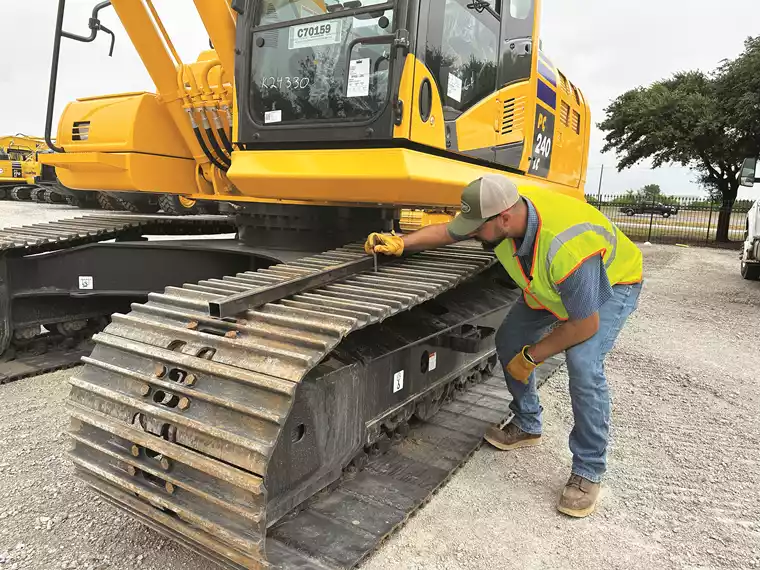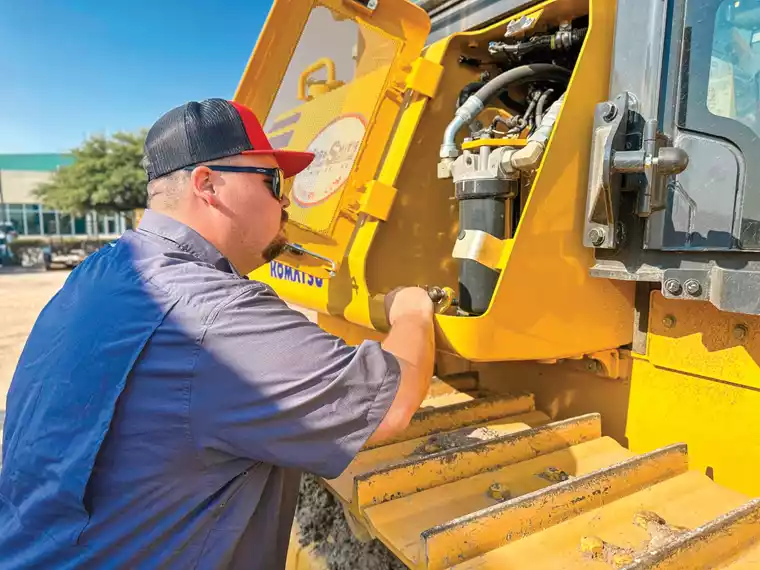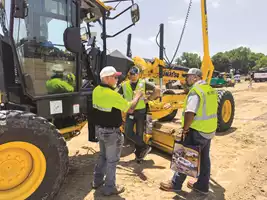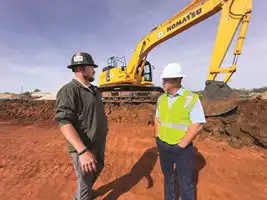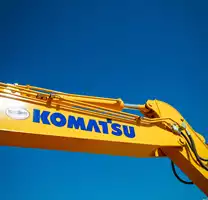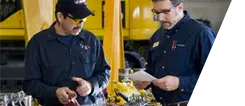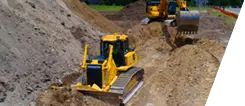Brian DeVore emphasizes that consistent oil sampling is an important preventive maintenance task
Oil is the lifeblood of machinery, and just like it’s important to check your blood for abnormal signs that cause illness, it’s vital to test oil for the same reason.
“An oil sample is one of the simplest and easiest ways to get a picture of a machine’s health,” stated Brian DeVore, Product Support Sales Representative (PSSR) at Kirby-Smith Machinery Inc.’s (KSM) Tulsa, Okla., branch. “It gives you the ability to see if everything is clear or if there are signs of a potentially catastrophic issue. That early detection can let you address it right away and potentially save a costly repair or worse.”
DeVore suggests pulling an oil sample at every maintenance interval and possibly more often with older machines. Your PSSR or service technician can perform the task.
“The first thing that’s tested is viscosity,” said DeVore. “It’s also tested for abnormalities such as high amounts of silica, copper or brass. All can be indicators of potential trouble, from a gasket or bearing that’s gone bad and letting in debris to something far worse. If there is a high amount of coolant, that could be an exhaust gas cooler failure in the near future. Knowing that ahead of time with a sample allows you to address it and keep downtime to a minimum with a fix rather than having it turn into a machine being shut down for a long period of time.”
A simple process
If you want to do the sampling yourself, the process is relatively simple, according to DeVore. You can get a kit from your local KSM’s parts department, pull the sample, and drop off the sample at KSM. The kit comes with tubing, a pump or gun, and the collection bottle.
“Pull the sample by sticking the tubing to about the middle of the tank and pulling on the gun to pump the oil into the bottle,” explained Devore. “It’s important not to collect the sample from the bottom of the tank, because that’s where everything settles. Seal the bottle, fill out the information and bring it in for testing. Normally, the results come back in two to three days, and we email those to the customer. If they think there is an issue, we can speed up the results.”
DeVore added that there is a nominal fee for the kit and testing.
“Think of it this way, it’s a small price to pay now to potentially save you big in the long run,” said DeVore. “For example, if you detect something in the hydraulic system, that can be fixed for a relatively low cost compared to not finding out until a pump goes bad, and you’re looking at repairs in the $40,000 to $50,000 range or worse. Sampling is critical and well worth the time and expense.”


